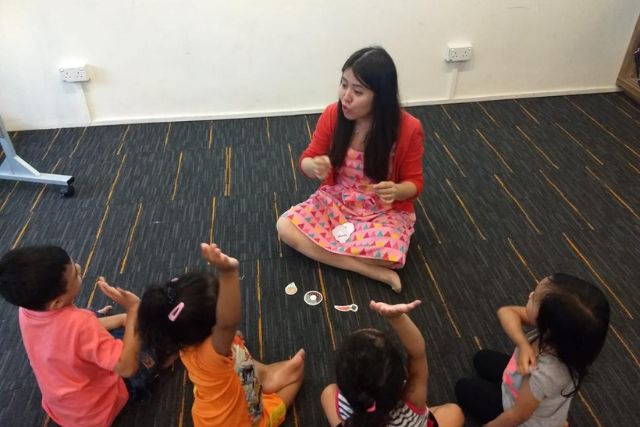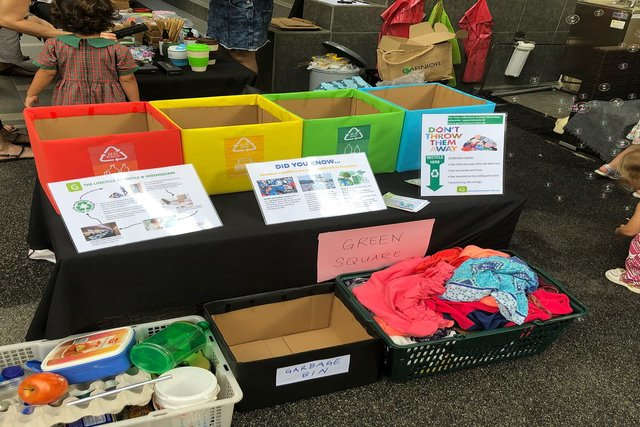Some days you may feel exhausted and wonder, “Where did my child get all that energy from?”. Your child seems to have boundless energy, running around, climbing on chairs and tables and always more difficult to control and discipline than your friends’ children. It may be that you have an ‘energetic’ child, but it is always good to seek a professional opinion to exclude other conditions like hyperactivity or attention deficit disorder.

What can parents do to guide their energetic child? Here are the top 10 tips to try out, many of which are applicable to all children since they all have so much energy!
1. Energy Outlet

Energetic children need to release their energy! As parents, we would rather such energy be channelled into exercise or outdoor fun than tantrums. Children need about 3 hours of exercise a day; schedule these exercise times throughout the day and observe when are the best times for that energy release!
2. Food Intake

Foods such as sugar, caffeine (present in many soda drinks), processed foods (with preservatives) have been linked to hyperactive or concentration issues in children. Ensure that your child gets healthy foods with tea breaks between main meals for a more even energy intake throughout the day.
3. Manage Your Child’s Expectations
An energetic child may need more guidelines on transitioning between activities. Think of yourself as a tour guide for your child’s day – letting him know what he will be doing next and when that is expected. Offer a detailed commentary of what to expect may help your child feel more secure about his day.
4. Manage Your Own Expectations
What is most important is your relationship with your child and his/her development. If you know your child’s behaviour is already an improvement though still fall short of ‘good’ behaviour, don’t fret about what others think.
⇒ Related Read: Storybooks That Teach Toddlers Good Behaviours
5. Set Clear Limits
Once a limit or boundary is set, do not sway from it. If you think your child cannot handle all the boundaries you would like to set or that you won’t have the energy or will to enforce them, start with fewer limits you can stick to.
6. Model the Good Behavior

Parents are children’s role models – often children follow how we behave rather than what we say. Want the child to be prompt in cleaning up? Make sure that you or your spouse don’t leave your own dishes lying around. Want the child to be quiet and spend some time reading? Do so yourself rather than being hooked on your smartphone!
7. Give Play Time and Space

Give uninterrupted time for your child to play and a safe space to do so. If things tend to get messy, have a dedicated safe space for the mess. Sometimes children may appear more animated or make more noise to get the parent’s attention. Try spending one on one time with your child during playtime and see if that improves his behaviour for the rest of the day.
8. Be Generous with Rewards

Rewards can be given in many ways and at the heart of it, rewards are to acknowledge your child’s good behaviour and that as a parent, you notice and appreciate these efforts. Praise, reward chart, time with you doing a special activity can all be rewarding to a child.
9. Focus on the ‘Yes’, not the ‘No’
It is more effective to let the child know what he/she should be doing and reward for that than to be restricting him/her from doing certain things and punishing. Parents may have to make an effort to re-script their language and remind each other of how they communicate with their child. Always focus on the actions and efforts, and not on the person. This means avoid labelling your child, especially never in front of others.
10. Offer a Security Blanket

Think of the character Linus in the Peanuts cartoon. It is not uncommon for children to hold on to something as a security blanket. While there is no need to create and force your child to want that blue blanket, it is certainly helpful to remember that children need to feel secure. This can be through letting your child know that you are close by, giving regular doses of hugs and kisses and helping your child feel protected.
⇒ Related Read: 10 Reasons Why You Should Hug Your Child Everyday
Parenting is not easy, no one says it is! It can be more difficult when your child has that much more energy, but don’t let his behaviour affect your love for him! On that note, if you need to, take a break and ask another caregiver for support.
By Mei.
Do you have a preschool child? We like invite you to join our Facebook group here for discussions on preschool related topics.
This article was first published in New Age Pregnancy.
* * * * *
If you find this article useful, do click Like and Share at the bottom of the post, thank you.
Like what you see here? Get parenting tips and stories straight to your inbox! Join our mailing list here.














































